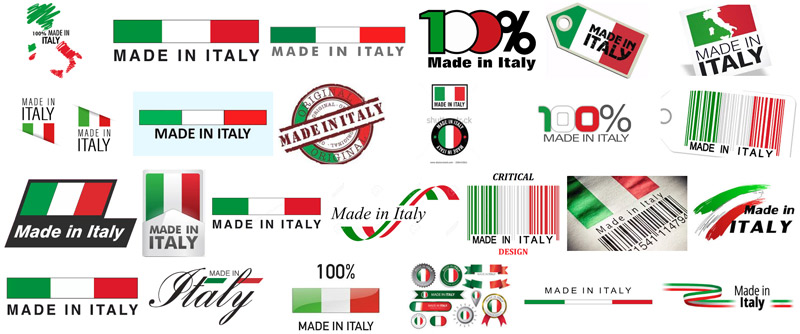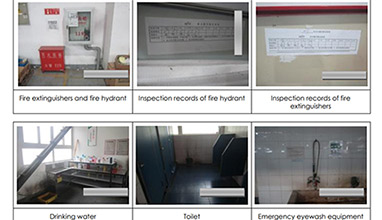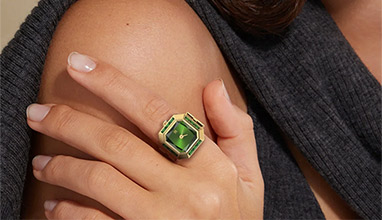Made in Italy - What does it mean
Made in Italy is a merchandise mark indicating that a product is all planned, manufactured and packed in Italy.
Made in Italy brand has been used since 1980 to indicate the international uniqueness of Italy in four traditional industries: fashion, food, furniture and mechanical engineering, in Italian also known as "Four A" - Abbigliamento (clothes), Agroalimentare (food), Arredamento (furniture) and Automobili (automobiles).
Abroad, Italian products had gained a reputation over time, with a corresponding commercial advantage. Italian products have often been associated with remarkable quality of realization, attention to detail, high specialization and differentiation, elegance, fantasy of design and shapes, durability and luxury.

According to a market study carried out by the Made-In-Country-Index (MICI) 2017, and published by Forbes on 27/03/2017, Made in Italy is now registered in 7th place in terms of reputation among consumers of all the world. KPMG points the Made in Italy as the third brand in the world for notoriety after Coca Cola and Visa.
Since 1999, Made in Italy has begun to be protected by associations such as Istituto per la Tutela dei Produttori Italiani (Institute for the Protection of the Italian Manufacturers), the Made in Italy Association, the Made in Italy Committee and regulated by the Italian law.
Made in Italy at Google
In January 2014, Google Cultural Institute, in collaboration with the Italian government and the Italian Chamber of Commerce, launched an online project aimed to promote Made in Italy by using virtual showrooms about several famous Italian products. The project can be found at https://artsandculture.google.com/project/made-in-italy
The "Made in Italy" brand
The "Made in Italy" brand has become fundamental for Italian exports. In 2009, the Italian law stated that only products totally made in Italy (planning, manufacturing and packaging) are allowed to use the labels Made in Italy, 100% Made in Italy, 100% Italia, tutto italiano in every language, with or without the flag of Italy. Each abuse is punished by the Italian law.
Compared with "Made in Germany" ('all essential manufacturing steps') and "Made in the USA" ('all or virtually all'), Italian regulation is more restrictive ('totally') in determining what qualifies for the use of the "Made in Italy" label.
With the Reguzzoni Law (Law n.55 of 8 April 2010), provisions had been introduced regarding the marketing of textiles, leather goods and footwear. In particular, the law establishes, in these sectors, a system of mandatory product labeling, which highlights the place of origin of each processing phase thus ensuring the traceability of the products themselves. Furthermore, the use of the "Made in Italy" indication is allowed only for products whose processing phases have taken place mainly in the Italian territory.
Hits: 35240 | Leave a comment



















